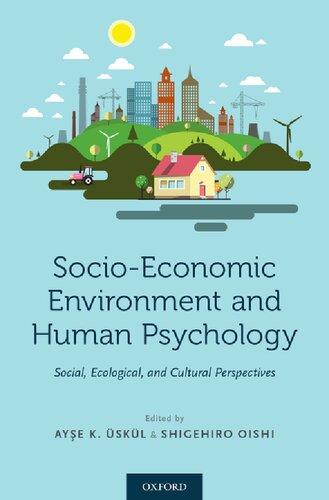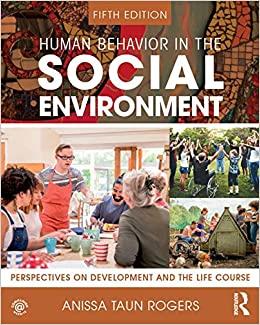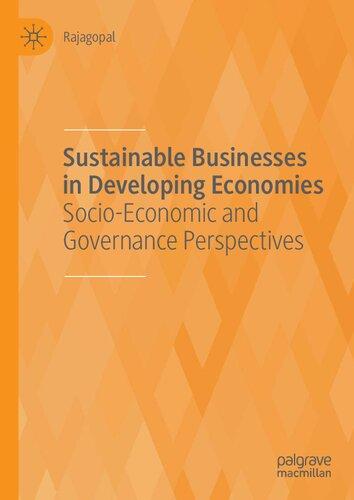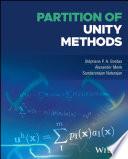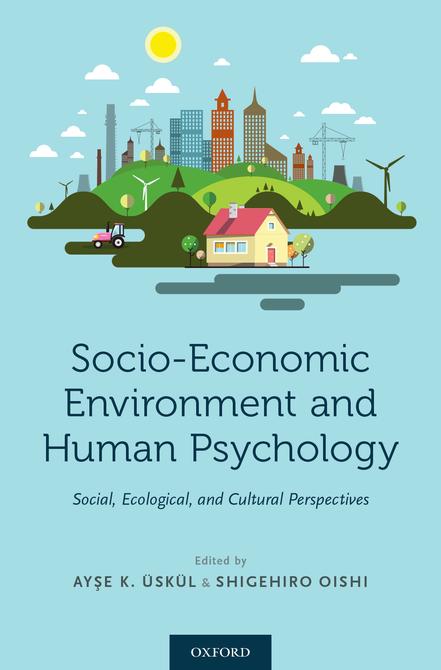Song for a Cowboy Sasha Summers
https://ebookmass.com/product/song-for-a-cowboy-sasha-summers-3/
ebookmass.com
Infinitival vs Gerundial Complementation with Afraid, Accustomed, and Prone: Multivariate Corpus Studies Juho Ruohonen
https://ebookmass.com/product/infinitival-vs-gerundialcomplementation-with-afraid-accustomed-and-prone-multivariate-corpusstudies-juho-ruohonen/ ebookmass.com
Only For You: A Small Town Single Dad Romance (Valentine Bay Book 4) Samantha Leigh
https://ebookmass.com/product/only-for-you-a-small-town-single-dadromance-valentine-bay-book-4-samantha-leigh/
ebookmass.com
Business Communication: Process & Product 9th edition Edition Mary Ellen Guffey
https://ebookmass.com/product/business-communication-processproduct-9th-edition-edition-mary-ellen-guffey/
ebookmass.com
Irish American Fiction from World War II to JFK
https://ebookmass.com/product/irish-american-fiction-from-world-warii-to-jfk/
ebookmass.com
https://ebookmass.com/product/partition-of-unity-methods-the-extendedfinite-element-method-stphane-bordas/
ebookmass.com
Socio-Economic Environment and Human Psychology
Socio-Economic Environment and Human Psychology
Social, Ecological, and Cultural Perspectives
Edited by AY Ş E K. ÜSKÜL and Shigehiro OISHI
Oxford University Press is a department of the University of Oxford. It furthers the University’s objective of excellence in research, scholarship, and education by publishing worldwide. Oxford is a registered trade mark of Oxford University Press in the UK and certain other countries.
Published in the United States of America by Oxford University Press 198 Madison Avenue, New York, NY 10016, United States of America.
© Oxford University Press 2018
All rights reserved. No part of this publication may be reproduced, stored in a retrieval system, or transmitted, in any form or by any means, without the prior permission in writing of Oxford University Press, or as expressly permitted by law, by license, or under terms agreed with the appropriate reproduction rights organization. Inquiries concerning reproduction outside the scope of the above should be sent to the Rights Department, Oxford University Press, at the address above.
You must not circulate this work in any other form and you must impose this same condition on any acquirer.
Library of Congress Cataloging-in-Publication Data
Names: Üskül, Ayşe K., editor. | Oishi, Shigehiro, editor.
Title: Socio-economic environment and human psychology : social, ecological, and cultural perspectives / edited by Ayşe K. Üskül, Shigehiro Oishi.
Description: New York : Oxford University Press, 2018. | Includes bibliographical references and index.
Identifiers: LCCN 2017046499 | ISBN 9780190492908 (hardback : alk. paper)
Subjects: LCSH: Economics—Sociological aspects. | Economics—Psychological aspects. | BISAC: PSYCHOLOGY / Social Psychology. | BUSINESS & ECONOMICS / Economics / Microeconomics. | SOCIAL SCIENCE / Anthropology / Cultural.
Classification: LCC HM548 .S6176 2018 | DDC 306.3—dc23
LC record available at https://lccn.loc.gov/2017046499
9 8 7 6 5 4 3 2 1
Printed by Sheridan Books, Inc., United States of America
To my family members, including my father, my mother, my sister, my husband and our 7-year old daughter Mira Ayda whose level of productivity in producing books I don’t even aspire to reach. You all have been the greatest inspiration to me.
Ayşe K. Üskül
To my undergraduate advisor, the late Professor Tamotsu Fujinaga, whose generosity and wisdom I will never forget.
Shigehiro Oishi
CONTENTS
Contributor List ix
Introduction xi
Ayşe K. Üskül and Shigehiro Oishi
SECTION 1 | Ecology and Economic Activity
CHAPTER 1 Ecocultural Perspective on Human Behavior 3
John W. Berry
CHAPTER 2 The Role of Economic Culture in Social Interdependence: Consequences for Social Exclusion Experiences 33
Ayşe K. Üskül and Harriet Over
CHAPTER 3 How Rice Farming Shaped Culture in Southern China 53
Thomas Talhelm and Shigehiro Oishi
CHAPTER 4 Rationally Irrational? The Ecologies and Economics of Honor 77
Dov Cohen, Ivan Hernandez, Karl Gruschow, Andrzej Nowak, Michele J. Gelfand, and Wojciech Borkowski
SECTION 2 | Socio-Economic Status and Inequality
CHAPTER 5 Decision-Making Up Against the Wall: A Framework for Understanding the Behavioral Dimension of Low Socio-Economic Status 105
Jennifer Sheehy-Skeffington
CHAPTER 6 Socio-Economic Inequality in Health: Individual- and Area-Level Measures of Socio-Economic Position 129
Nicos Middleton, Panayiota Ellina, George Zannoupas, Demetris Lamnisos, and Christiana Kouta
CHAPTER 7 Socio-Economic Cultures: How Education Shapes the Self 171
Rebecca Carey and Lucy Zhang Bencharit
CHAPTER 8 Context Shapes Human Development: Studies from Turkey 199
Çiğdem Kağitçibaşi and Zeynep Cemalcilar
SECTION 3 | Economic Conditions
CHAPTER 9 Economics of Subjective Well-Being: Evaluating the Evidence for the Easterlin Paradox 225 Anke C. Plagnol and Lucia Macchia
CHAPTER 10 Economic Shifts and Cultural Changes in Individualism: A Cross-Temporal Perspective 247 Yuji Ogihara
CHAPTER 11 Dynamics of Culture Change and Cultural Stability among the Shuar of Ecuador 271 H. Clark Barrett
SECTION 4 | Ecological and Economic Threat
CHAPTER 12 Economic Conditions Cue Evolutionary Challenges: When a Recession is More Than Just a Recession 299
Jeff Gassen and Sarah E. Hill
CHAPTER 13 Disasters, Insurance, and Preferences 327
Yasuyuki Sawada
Author Biographies 353 Index 363
CONTRIBUTOR LIST
H. Clark Barrett
Department of Anthropology
University of California, Los Angeles
Los Angeles, CA, USA
John W. Berry Department of Psychology
Queen’s University Kingston, Ontario, Canada
Wojciech Borkowski
School of Social Sciences and Humanities
University of Warsaw Warsaw, Poland
Rebecca Carey Department of Psychology
Stanford University Stanford, CA, USA
Zeynep Cemalcılar Department of Psychology
Koç University Istanbul, Turkey
Dov Cohen
Department of Psychology University of Illinois at Urbana-Champaign Champaign, IL, USA
Panayiota Ellina Department of Nursing
Cyprus University of Technology Limassol, Cyprus
Jeff Gassen Department of Psychology Texas Christian University Fort Worth, TX, USA
Michele J. Gelfand Department of Psychology University of Maryland College Park, MD, USA
Karl Gruschow Department of Psychology
University of Illinois at Urbana-Champaign Champaign, IL, USA
Ivan Hernandez
Department of Psychology
DePaul University
Chicago, IL, USA
Sarah E. Hill Department of Psychology
Texas Christian University
Fort Worth, TX, USA
Çiğdem Kağitçibaşi Department of Psychology
Koç University Istanbul, Turkey
Christiana Kouta Department of Nursing
Cyprus University of Technology
Limassol, Cyprus
Demetris Lamnisos Department of Health Science
European University Cyprus Nicosia, Cyprus
Lucia Macchia
Department of Psychology
City, University of London London, England, UK
Nicos Middleton Department of Nursing
Cyprus University of Technology Limassol, Cyprus
Andrzej Nowak Department of Psychology University of Warsaw Warsaw, Poland
Yuji Ogihara
Department of Cognitive Psychology
Kyoto University Kyoto, Japan
Shigehiro Oishi Department of Psychology University of Virginia Charlottesville, VA, USA
Harriet Over Department of Psychology University of York York, England, UK
Anke C. Plagnol Department of Psychology
City, University of London London, England, UK
Yasuyuki Sawada Faculty of Economics University of Tokyo Tokyo, Japan
Jennifer Sheehy-Skeffington Department of Psychology
London School of Economics London, England, UK
Thomas Talhelm
Booth School of Business University of Chicago Chicago, IL, USA
Ayşe K. Üskül School of Psychology University of Kent Kent, England, USA
George Zannoupas Department of Nursing
Cyprus University of Technology Limassol, Cyprus
Lucy Zhang Bencharit Department of Psychology
Stanford University
Stanford, CA, USA
| Contributor List
INTRODUCTION
Ayşe K. Üskül and Shigehiro Oishi
Socioecological psychology is a relatively new subfield of psychology that investigates humans’ cognitive, emotional, and behavioral adaptation to physical, interpersonal, economic, and political environments. By adopting an objectivist perspective to psychological science and focusing on how objective social and physical environments affect one’s thinking, feeling, and behaviors, as well as how people’s thinking, feeling, and behaviors give rise to social and built environments, it differs from many other subfields of psychology that typically focus on how an individual’s perception and construal of the environment affect one’s thinking, feeling, and behavior (e.g., Dweck, 2006; Wilson, 2011). This way, it moves away from the study of the subjective, intrapsychic phenomenology to elucidate how individuals and different types of ecologies define each other (for reviews, see Oishi, 2010, 2014; Oishi & Graham, 2010). By focusing on the ecology-psychology interface, socioecological psychology acknowledges the importance of the commonly neglected fact that people most often think, feel emotions, and act in reaction to, and in the presence of, other people and in certain physical, climatic, political, economic, demographic, and cultural conditions.
In this book, we focus on one of these environments, namely the socioeconomic environment, which impacts every aspect of individuals’ entire life cycle. By doing so we highlight the importance of situating the individual directly in the everyday realities afforded by economic conditions and settings that provide the material basis of psychological outcomes and
contribute to bridging the psychological with the external circumstances. This approach is important as it highlights the important role that psychology can play in understanding the human experience as embedded in different (economic) ecologies and puts psychology in closer communication with other social sciences, such as sociology and economics, that have a tradition of attending to objective social structural factors.
In this edited volume, we underline the value of attending to socioecological approaches in understanding the relationship between the socioeconomic environment and human psychology by including state-of-the art research that focuses on the role played by (a) type of ecology and associated economic activity/structure (e.g., farming, herding), (b) socioeconomic status and inequality (e.g., poverty, educational attainment), (c) economic conditions (e.g., wealth, urbanization), and (d) ecological and economic threat (e.g., disasters, resource scarcity) in the shaping of different psychological processes including subjective well-being, construction of the self, endorsement of honor, cognitive styles, responses to social exclusion, food intake, decision-making, health behaviors, and academic outcomes, among others. We grouped contributions under sections that tap into these topics. However, as it will be apparent, there are crosscutting themes that the readers will come across in different sections.
Our decision to prepare an edited volume to focus on the role of different aspects of the socio-economic environment in human psychological processes was motivated by the following theoretical and empirical developments. First, in our view, the amount of accumulated research designed to examine the impact of the socio-economic environment on different psychological processes justifies an edited volume. Research in this area has already produced large evidence on a rich set of connections between economic life and human psychology, linking, for example, on the one hand economic conditions such as wealth, socio-economic status and inequality, and economic change with subjective well-being, autonomy-relatedness, and identity, and, on the other hand, economic activities or structures, such as (wheat vs. rice) farming and herding or market economy versus conditions of stable hierarchy, with perceptual and social interdependence, prosociality, coordination, and motivation. The absence of a similar volume in the literature that brings to the reader a collection of different disciplinary approaches to this topic was one of our main motivations to prepare an edited volume that would showcase the rich and diverse set of perspectives researchers take to understand the link between the economic environment and psychological processes.
Second, researchers in social science disciplines other than psychology that examine the impact of objective and social structural conditions
on human reality (e.g., sociology, economics) have limited awareness of the contributions that psychology has made to the study of the association between economic life and human psychological functioning (and vice versa). This book showcases cutting-edge research from psychology on this topic and helps introduce it to readers in other social science disciplines. Although showcasing psychological research in this area was one of our motivations, our ultimate aim was to bring together perspectives from different social science disciplines. Thus the coverage of this book is not limited to psychology but also includes contributions from researchers in economics, anthropology, epidemiology, and evolutionary science who take a socioecological approach to investigating the link between socioeconomic environment and psychological processes. As will be clear, most chapters also draw links between different disciplines such as social psychology, evolutionary science, and economics, reflecting the interdisciplinary nature of the questions asked in this area of inquiry. Reflecting the different (inter)disciplinary approaches presented across the contributions, this volume also showcases the different methods researchers utilize including archival, experimental (lab-based and field), correlational, observational, and agent-based modeling. We hope that the multidisciplinary (and multimethod) nature of this volume will provide a gateway to increasing interdisciplinary communication on the topic in the future and encourage learning from each discipline’s methodological and theoretical strengths to help advance the knowledge in a concerted fashion.
Third, research that takes a socioecological approach is becoming increasingly diverse in terms of the location and type of the groups studied in different disciplines. We aimed to bring together contributions that highlights this diversity. Accordingly, the research covered in this volume originates from different parts of the world covering different geographical regions (e.g., Turkey, China, Japan, the United States, Ecuador, the United Kingdom, Cyprus) and kinds of human groups including wheat, rice, tea farmers and herders, rural tribes and metropolitan settlers, working-class versus middle-class individuals, low socio-economic groups, and individuals who face recession or disasters.
Furthermore, most chapters adopt a comparative socioecological approach that presents evidence for similarities between and variation across the studied economic conditions and activities. By looking beyond single groups and adopting a comparative lens, chapters provide an opportunity to refine, anchor, reinforce, or modify existing arguments and assumptions about human psychology and contribute to the diversity of knowledge in psychological sciences, helping our discipline move away
from being a study of the WEIRD (Western, Educated, Industrialized, Rich, and Democratic) societies (Henrich, Heine, & Norenzayan, 2010).
Fourth, there are now several groups of researchers in different parts of the world based in different social science departments investigating related research questions that tap into the relationship between socioeconomic environment and human psychology. For the most part, these groups are not connected and are rarely aware of the commonalities and differences in the approaches they take and the conclusions they draw from their research discoveries. We hoped to prepare a volume that would be instrumental in creating a coherent body of knowledge and stimulate collaborative efforts to investigate novel questions at the interface of economic conditions and activities and human psychological processes.
Finally, as seen by the Lehman shock, the Eurozone crisis, the yet unknown but feared economic effects of Brexit and other recent booms and busts, economic conditions are constantly changing in many societies. In the middle of economic uncertainties and fast changes, it is timely to focus on the impact of various economic conditions on human psychology that should be of interest to scholars in and outside of psychology and economics, as well as policy makers and the general public.
Overview of the Volume
We start this edited volume with contributions from leading researchers in social and (cross)cultural psychology who have significantly advanced our understanding of the association between different forms of economic activities individuals pursue for living and different aspects of human mind and behavior. The first section of the volume, titled “Ecology and Economic Activity” features four chapters that highlight the important role played by ecology, which shapes the type of economic activity in which members of a community engage and the subsequent dominant economic structures in how individuals perceive and act upon their physical and social world. This section starts with a review chapter by John Berry, one of the leading figures who introduced the ecocultural approach to the study of human behavior in the 1960s. In this approach, he emphasizes the role of both ecological and cultural contexts in understanding the development and display of human behavior and highlights the concepts of interaction (reciprocal relationships among elements in the system) and adaptation (change that takes place that may/may not increase mutual compatibility) in making sense of human behavior in context. In
this chapter, Berry reviews research that focuses on the dynamic interplay between ecology and human behavior emphasizing consequences for perception, cognition, and social relations. His review of studies (old and new) sheds light into the evolution of ideas that have been examined using the ecocultural approach and highlights the interdisciplinary nature of thinking that cuts across different subfields of anthropology, cognitive science, and psychology.
In the following chapter, Ayşe K. Üskül, a social/cultural psychologist, and Harriet Over, a developmental psychologist, focus on daily requirements induced by pursuing farming or herding for living and the associated consequences for social relationships. Specifically, they discuss how different economies can give rise to different habits and social practices and how these habits and social practices then translate into how individuals relate to others and define their self-concepts. They review studies conducted with members of tea farming and herding communities in the eastern Black Sea region of Turkey designed to examine the role of social interdependencies individuals build with others in how they respond to social exclusion. This chapter features research conducted with both adults and children with a goal to identify how deep-rooted the differences between these economic communities might be. In addition to highlighting the role of the economic activity and associated level of social interdependencies in social relationships, this chapter also contributes to a more refined understanding of social exclusion experiences by focusing on the source of social exclusion (by strangers versus close others) and how children respond to social exclusion incidents that they witness and how they morally evaluate those involved in exclusion.
In the next chapter, social and cultural psychologists Thomas Talhelm and Shigehiro Oishi focus on even a finer distinction between different types of economic activities and compare wheat farming with rice farming in terms of the likely consequences for coordination and cooperation among individuals that come from communities that earn their livelihood from pursuing these economic activities. Their observations reported in this chapter originate mainly from studies conducted in China based on which they put forward a theory that links southern China’s history of rice farming to its modern-day culture. They first give a detailed account of how rice farming differs from other forms of farming in terms of labor requirements and need for coordination and how the distinct characteristics of rice farming are expected to shape social relationships and thought styles among individuals from rice farming areas differently compared with those from what farming areas. They then present research evidence
that demonstrates differences between rice versus wheat farming areas in terms of importance of the self, friend/stranger distinction, and relational mobility. Finally, they discuss the effects of modernization on changes in rice-farming and the potential shifts these changes might bring about in human psychology.
In the final chapter of the first section of this volume, Dov Cohen and his colleagues discuss a relatively recently introduced distinction between three motivational systems, honor cultures, face cultures, and dignity cultures, and then focus on the ecological (e.g., rough, mountainous terrain) and economic (e.g., presence of portable, stealable wealth) structures that give rise to the emergence of honor cultures. Next, they introduce the distinct characteristics related to honor cultures including short-term irrationality, which might prove to be a “rational” strategy in the long run. They then test this rationality argument in terms of costs and benefits using agent-based modeling. Specifically, this chapter draws upon recent work conducted using three agent-based models that examine when an honor stance proves advantageous and that explore the population dynamics of strategies in the environment. They demonstrate that the long-term effects of short-term irrationalities observed in honor cultures may in fact be rational in that they help maximize desired outcomes for the individual and social group at large.
The second section of the volume, titled “Socio-economic Status and Inequality,” features four chapters that highlight the role of socio-economic conditions in decision-making, health, and the self. This section starts with a chapter by the social psychologist Jennifer Sheehy-Skeffington, who surveys a wide range of evidence for socio-economic status (SES) disparities in health behavior, economic decisions, and educational outcomes. She further examines an intriguing question regarding why low-SES individuals are more likely than high-SES individuals to engage in disadvantageous behaviors (e.g., health-damaging behaviors, suboptimal financial decisions). She offers a new framework for understanding this important phenomenon based on the psychology of resource scarcity (e.g., weakened executive function) and self-regulation (e.g., less ability to act in line with long-term goals). In the end, Sheehy-Skeffington advocates a shift away from the deficit model of poverty to the adaptive, life history theory of poverty.
In the second chapter of this section, the epidemiologist Nicos Middleton and his colleagues explore the role of socio-economic position in health. The authors focus on the relative position of an individual household and a community in their analyses. At the individual level of
analysis, Middleton and colleagues examine the role of education, income/ wealth, and occupational status. At the level of community, they use the census-based measure of neighborhood deprivation (e.g., unemployment rate, overcrowding), as well as new multiple indicators that include income, air quality, and crime rate. Besides objective indices of neighborhood deprivation, some researchers use the aggregate of survey responses on concepts such as social capital and collective efficacy. This chapter also provides a useful guideline for indices of community-level deprivation.
The third chapter in this section by social and cultural psychologists Rebecca Carey and Lucy Zhang Bencharit focuses on the role of socioeconomic cultures, defined primarily by level of educational attainment, in human behavior through their impact on one’s experience of self as either independent or interdependent. They first outline how level of educational attainment shapes sociocultural and socio-economic realities through their impact on interactions and social networks; the norms, rules, policies, and practices of formal institutions; and ideas about what is good and normative. They then summarize research illustrating how high school and college-educated contexts can breed an interdependent self and independent self, respectively, and the consequences these contexts create for cognitive, emotional, and motivational processes. Finally, they focus attention on how parental educational attainment influences children’s educational attainment, further contributing to disparities in our societies and put forward suggestions that are grounded in research for how to overcome these disparities. This chapter contributes to our understanding of how education can have psychological outcomes, going beyond the traditional focus of social sciences on the importance of education for economic outcomes.
The fourth and final chapter in this section by Çiğdem Kağitçibaşi and Zeynep Cemalcılar, two social developmental psychologists, first discusses the importance of socio-economic context for human development including topics such as parenting and schooling. The authors then introduce Kağitçibaşi’s theory of family change that takes into account the dynamic interplay between different aspects of social and economic context (e.g., urban-rural habitat, SES, level of affluence) and how this can lead to the emergence of different types of family models. This approach emphasizes that families and the parenting styles they adopt adapt to the requirements of socio-economic contexts and transform with contextual changes, especially with increasing levels of urbanization and socio-economic development. To highlight the role of socio-economic status in human development, the authors present findings from research conducted in Turkey,
a cultural context with high levels of social change in recent times, that demonstrates the detrimental effects of low SES on various social (e.g., prosocial behaviors), developmental (e.g., children’s vocabulary), and academic (e.g., school dropout) outcomes. They also present findings from an intervention study aiming to counteract some of the negative consequences of low SES on child development. Their approach not only emphasizes the importance of socio-economic context on human development but also takes into account the changing nature of socio-economic factors. It also situates family as a socializing unit at the core to understand the link between changing environmental conditions and the self.
The third section of the volume, titled “Economic Conditions,” brings together three contributions that focus on the role of changes in economic conditions in subjective well-being, individualism-collectivism, and culture at large. The economists Anke C. Plagnol and Lucia Macchia tackle a paradoxical finding initially observed by Richard Easterlin, called the Easterlin paradox: Even though wealthy individuals are happier than poor individuals, economic growth has not increased citizens’ happiness in many countries, including the United States. Recently, however, some researchers have challenged Easterlin’s original observations and shown that economic growth has increased citizens’ happiness in some countries. Plagnol and Macchia review the latest empirical evidence and argue that the Easterlin paradox is still present. Furthermore, the authors explore the factors that contribute to the Easterlin paradox such as social comparison, hedonic adaptation, and consumption norms.
The second chapter in this section by the social and cultural psychologist Yuji Ogihara takes a temporal perspective to understand how economic shifts are associated with changes in individualism in the United States, Japan, and China. The author builds on previous research demonstrating that wealth and individualism are positively associated both at the individual and the national level and asks whether this relationship is also present at the temporal level. He first introduces a theoretical account for why economic affluence and level of individualism may be associated. He then presents empirical evidence on economic development in the United States, Japan, and China and temporal changes in individualism focusing on historical shifts in family structure (divorce rate, household size), baby naming practices, and individualistic nature of words in books. He concludes that, over time, as a society becomes more affluent, it becomes more individualistic. He discusses potential underlying mechanisms for this association and makes valuable suggestions for future research in this growing field of inquiry.
The final chapter in this section by anthropologist H. Clark Barrett examines culture change and culture stability among the Shuar, an indigenous Amazonian society in southeastern Ecuador, a community that is undergoing rapid changes in technology and infrastructure leading to shifts in the economic (e.g., resource sharing, acquisition, and distribution) and social (e.g., marriage and family structures) life. Using a cultural evolutionary perspective, he asks which aspects of the Shuar economic and social life are expected to change and which aspects are expected to remain stable. He also discusses possible processes that shape cultural change and stasis among the Shuar. Through this specific example, Barrett engages with broader questions concerning the dynamics of human cultural history, focusing on the bidirectional feedback between environmental structures and individual behavior.
The fourth and final section of the volume, titled “Ecological and Economic Threat,” brings together two contributions that focus on different kinds of threats: recessions and disasters. Economists, sociologists, and other social scientists have documented the effects of economic crises or threats on various human behaviors, ranging from consumer spending to criminal activities to voting. The links are fairly straightforward—such as the finding that people do not spend as much money on nonessential items during a recession as they do during an economic boom—and do not require much psychological analysis. However, recent research emerging from psychology and economics research showed more distal, nonintuitive links between economic conditions and human behaviors. The last two chapters provide us an introduction into psychological responses to ecological and economic threats and how it might be possible to find protection against the damaging consequences of such threats.
The chapter by Jeff Gassen, an experimental psychologist, and Sarah Hill, a behavioral ecologist and evolutionary psychologist, reviews research that has approached psychological responses to one particular type of economic threat, namely resource scarcity, from an evolutionary perspective. First, they focus on the effects of economic conditions encountered in childhood on critical developmental outcomes (e.g., thrifty phenotype, eating in the absence of hunger). Next, they review studies that examine how market forces can shape interpersonal relationships (e.g., degree of trust toward and inclusion of others into our in-groups). Finally, they discuss findings demonstrating the role of recessions in providing information about the local mating market and the benefits and costs associated with investing in mating and parenting (e.g., men’s attitudes toward wealth distribution, use of cosmetics, parental investment). Given the
damages incurred by modern economic recessions, this chapter provides timely insight into the powerful role played by economic disasters in shaping developmental trajectories and perceptions of our social, physical, and economic environments later in life.
The final chapter of the volume by the economist Yasuyuki Sawada starts by highlighting the link between natural or man-made disasters (including economic disasters as threats) and economic growth and underscores that disasters affect the poor and the vulnerable more negatively than the affluent due to limited physical, financial, and social resources. He then asks how individuals can protect themselves from damaging consequences of disasters. As response to this question, he first reviews several market and nonmarket insurance mechanisms that can help individuals cope with the potential damages caused by disasters, focusing on the linkages between the market, government, and community. Next, he summarizes findings from field experiments conducted to study changes in individual preferences for risk and social preferences (e.g., altruism, fairness) as a function of disasters that can potentially have long-term negative consequences for development prospects. The identification and the study of the disasters-preferences link has important policy implications, and accordingly this chapter stresses how this link plays a role in coping, reconstruction, and rehabilitation of a disaster.
Conclusion
Through this volume, we aim to introduce the socioecological approach used by an increasing number of social scientists to investigate the interface between the environment and human psychology. Our goal is also to underline the importance of the socio-economic environment as a worthwhile condition to examine when taking into account how individuals think, feel, and behave in context. Since the socioecological psychology is a relatively new subfield of psychology, we hope this volume serves the important goal of contributing to the diversity of approaches taken in psychology and other social sciences.
References
Dweck, C. S. (2006). Mindset. New York: Random House. Oishi, S. (2010). The psychology of residential mobility: Implications for the self, social relationships, and well-being. Perspectives on Psychological Science, 5, 5–21.
Oishi, S. (2014). Socio-ecological psychology. Annual Review of Psychology, 65, 581–609. Oishi, S., & Graham, J. (2010). Social ecology: Lost and found in psychological science. Perspectives on Psychological Science, 5, 356–377.
Wilson, T. D. (2011). Redirect: The surprising new science of psychological change. New York: Little, Brown.
SECTION 1 Ecology and Economic Activity

